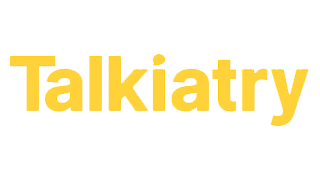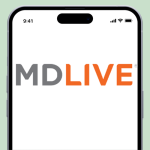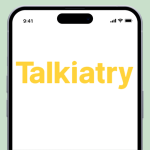Table of Contents
If you’ve experienced trauma, it can be exhausting. Whether it’s been days, months, or even years since the event (or events) occurred, trauma can feel intense and disabling, and it can greatly impact your everyday life.
Trauma, a psychological response to an event or series of events that are scary, shocking, or dangerous, can manifest in various ways and affect everyone differently. Some people who experience trauma develop post-traumatic stress disorder (PTSD), a mental health condition that is more common than many of us realize. According to one report, about one in 11 people will be diagnosed with PTSD in their lifetime, with women, U.S. Latinos, African Americans, and Native Americans experiencing the highest rates of PTSD.
Although trauma can be debilitating, you are not alone, and treatment is available. Online therapy can be an option for effective, quality care.
I had a messed up childhood. I saw combat in the Gulf War back in the day, and I have communication issues with my wife. So when I first went into therapy, I didn’t think anybody could take the lid off this boiling pot. But, my therapist did.
Focus group participant, online therapy user
We know how hard it is to sort through therapy options, so we hand-selected and narrowed down the best online therapy platforms by examining how they can help people with trauma, so that you can focus on picking the one that best suits your needs and budget.
Learn more about the different options and how they can help you or someone you care for with their trauma.
Our picks of the best online trauma therapy platforms
- Talkspace: Best for PTSD
- Zocdoc: Best for different types of trauma
- MDLive: Best for flexible scheduling
Our pick of the best online psychiatry platform for trauma
- Talkiatry: Best for psychiatry and medication management
HelpGuide Handbook’s Online Therapy Testing Methodology






The Handbook team researched more than 70 online therapy platforms, directories, and networks. Based on our research, we signed up for the top 20 platforms to test out for ourselves. Here’s what we did with each online therapy platform:
- Fill out the intake assessment.
- Subscribe as a new user.
- Get matched with a therapist.
- Schedule and attend sessions on the platform for one month.
- Go through the steps to switch therapists.
- Contact customer support with questions.
- Explore platform features such as journals, worksheets, and group sessions.
- Cancel subscription.
Testers explore the platforms and attend online therapy sessions for at least four weeks. Our testers are instructed to test the platforms through the lens of a real user, paying attention to how easy or difficult it is to find a therapist who specializes in a specific area, like trauma. Testers log their experiences in a diary and come together to share their findings when testing concludes.
So far, we’ve learned that most testers have felt the need to switch providers, especially the ones testing platforms that initially matched users to their providers. Our challenge is to test and evaluate the features and experience of the platforms themselves rather than the care from individual providers. We were surprised when we encountered the lack of choice in providers on some platforms. For example, when our Calmerry tester was looking for a provider of color in their state, they were given three choices, none of whom matched the tester’s preferences. Still, we are pleased that most of our testers had positive interactions with the providers they chose.
From our tester
“I’ve been through many therapists before, but I was surprised when I found a therapist who specialized in my concerns and had a different approach to therapy. I learned a new perspective to frame my ongoing concerns and got to connect with a caring provider that I felt comfortable with.”
Online therapists may not be the most appropriate resource to help in a mental health crisis. If you or someone you know is a danger to themselves or others around them, it’s an emergency that can’t wait for an online therapist’s response.
Don’t wait. You can find help immediately by:
- Visiting urgent care or an emergency room.
- Calling 911.
- Calling or texting 988 for the Suicide & Crisis Lifeline.
- Chatting online at 988lifeline.org.
- Calling the Substance Abuse and Mental Health Services Administration (SAMHSA) Helpline at 1-800-662-4357 or texting your zip code to 435748.
- Calling the National Sexual Assault Hotline at 1-800-656-4673 or chatting online.
- Calling The Trevor Project at 1-888-488-7386 or texting START to 678-678 to talk with trained professionals who understand the challenges faced by LGBTQ youth.
All the above options will connect you with trained professionals who can provide crisis support. You can find even more resources, including international options, on our helpline directory page.
Compare the best online trauma therapy and psychiatry platforms of 2024
| Types of Trauma Support | Therapists who specialize in trauma, PTSD, sexual abuse, and childhood trauma | Therapists who specialize in childhood trauma, betrayal trauma, intergenerational trauma, psychological trauma, sexual abuse, and PTSD | Therapists that specialize in trauma and PTSD, and grief and loss. | Psychiatrists who specialize in trauma and PTSD, and medication management for severe symptoms |
| Cost for Individual Therapy | Therapy: $276–$436 per month Psychiatry: $299 for initial session, $1,260 for nine follow-up sessions | Varies based on provider and location | Therapy: $108 per session Psychiatry: $284 for initial session, $108 for subsequent sessions | $30 average copay per session, varies based on insurance |
| Accepts Insurance | Yes | Yes | Yes | Yes |
The best online trauma therapy reviews
Best for PTSD: Talkspace
Our final verdict
Talkspace may be right for you if you’re experiencing symptoms of PTSD but are unsure if you should seek treatment. This platform provides a quick PTSD screening when you sign up and allows you to be matched with a therapist who focuses on trauma, PTSD, sexual abuse, childhood trauma, family issues, grief, and bullying.
Insights from our testers
If you are experiencing symptoms of PTSD but are unsure if you should seek treatment, you can take Talkspace’s free online PTSD assessment. Talkspace has a series of mental health screenings, but they are by no means meant to be used as tools for self-diagnosis. The screening can help you understand and validate your symptoms, but we recommend that you meet with a mental health care professional to receive a proper PTSD diagnosis.
I, like many trauma therapists, view PTSD like an injury (often a hidden one). We are wired to survive, but we are also wired to heal
Angela Belleville, owner of Bella Health in Salem, Massachusetts
For their PTSD screening, Talkspace uses the PTSD Checklist (PCL-5), one of the diagnostic tools that mental health care professionals use to diagnose PTSD. The questionnaire takes less than five minutes to answer 20 multiple choice questions based on your responses to thoughts or reminders of a stressful event(s) and whether you’re experiencing related symptoms like insomnia or fear of social interactions. At the end of the test, it will ask for your email and provide you with a score that measures your likelihood of experiencing symptoms of PTSD.
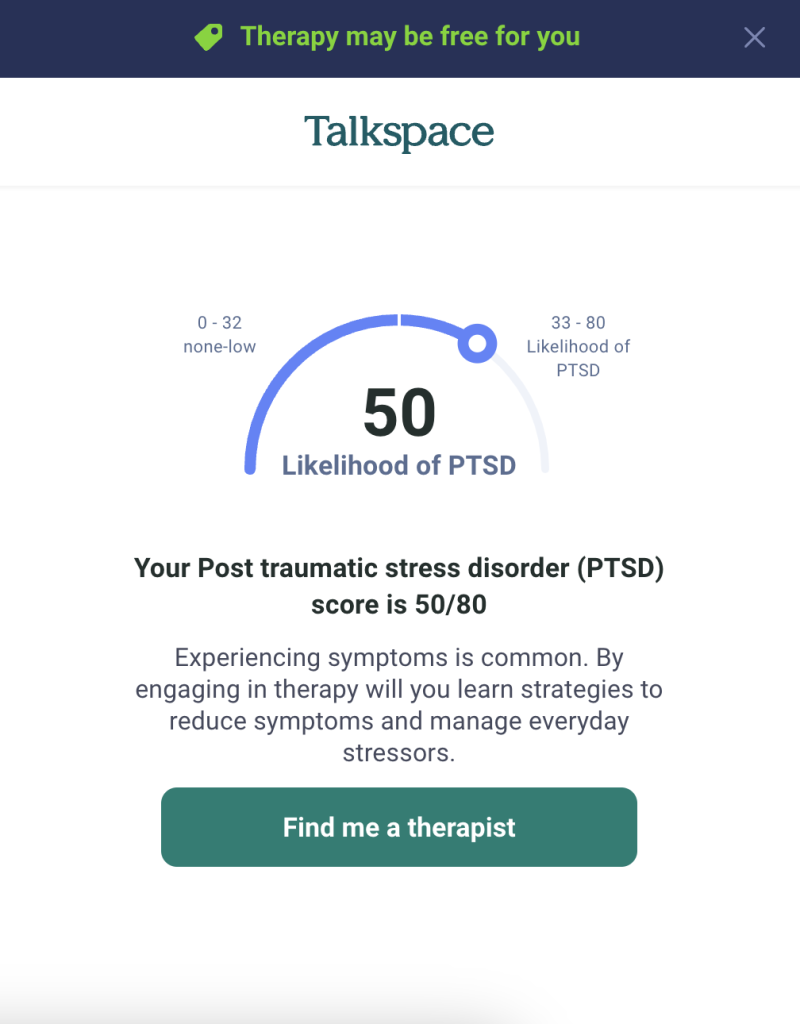
You’ll also have the option of clicking the button to find a list of provider options, like teen therapy, couples therapy, and psychiatry.
Our testing shows that Talkspace considers your provider preferences when making recommendations. If you request a therapist specifically for trauma, most of your matches will likely have experience in treating trauma.
For more information, read our Talkspace review.
Best for different types of trauma: Zocdoc
Our final verdict
We chose Zocdoc as the best for different types of trauma because their search tool makes it easy to look for a provider based on specific types of trauma. There are a total of 14 filter categories, including treatment approaches, mental health conditions, ethnicity, sexuality, and more. This range of search options and specialties makes it easier for users to find providers who can help them with their specific concerns and issues.
Insights from our testers
So far, our testers have been impressed by the extensive provider filter selections. This makes the platform even more valuable for people who are looking for a therapist with specific trauma experience, such as family trauma, sexual abuse, or childhood trauma.
When looking for a therapist on Zocdoc, you can choose a “visit reason” to narrow your search and find a provider who can accommodate your specific needs. You can choose from a few different trauma-related areas, including:
- Psychological trauma.
- Betrayal trauma.
- Sexual abuse.
- Post-traumatic stress disorder.
- Childhood trauma.
- Family issues.
- Trauma-focused cognitive behavioral therapy (CBT).
Additionally, you can search through each provider’s profile to read more about their background and experience. The profiles are extremely detailed, including information on the provider’s availability, accepted insurance, patient reviews, cost, and a list of “focus areas” the provider treats.
The trauma-specific focus areas include all of the above topics, as well as intergenerational trauma and infertility trauma, both of which may be important for someone seeking family trauma counseling, for example.
Best for flexible scheduling: MDLive
Our final verdict
MDLive is a great choice for finding an online trauma therapist with flexible scheduling options. There are providers who specialize specifically in trauma and PTSD, and the search filters make it super easy to sort through the providers to find a match. Once you choose a therapist, you’ll be given a list of appointment slots, some as soon as the next day. If you can’t find a suitable time, you can request an appointment for a time that works for you.
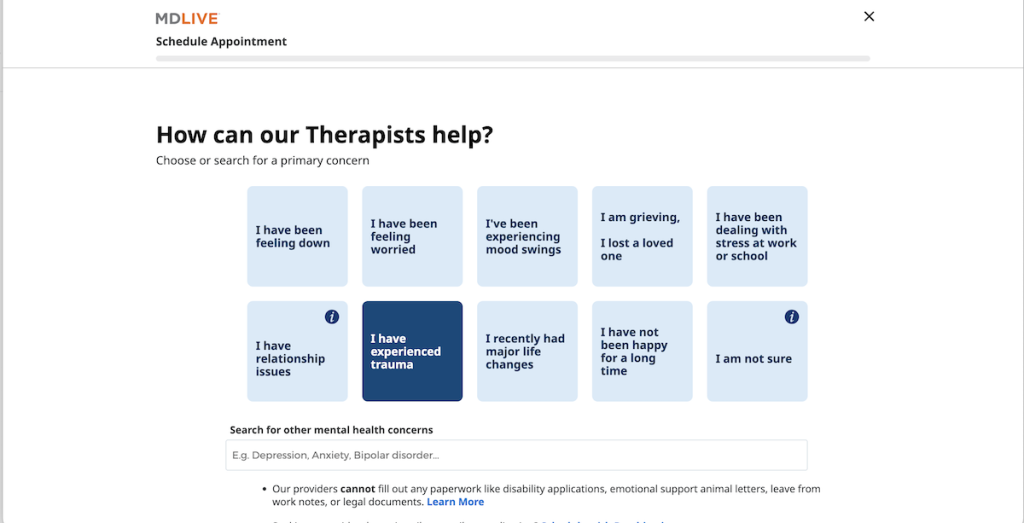
Insights from our testers
When you’re scheduling an appointment, there will be filter options at the top of the screen. You can select “Trauma and PTSD” as one of the specialties to filter your results. You can also type in “trauma” or “PTSD” as the reason for your visit. When you do this, the search results will populate with providers that specialize in trauma or PTSD.
When we searched for providers that specialized in trauma and PTSD in Pennsylvania, we were given 28 providers to choose from. We’ve tested a lot of online therapy platforms, so believe us when we say 28 choices is a lot.
In addition to trauma and PTSD, you can also filter by specialties such as:
- Grief and loss.
- Depression.
- Stress.
- Pregnancy/infertility.
- Relationships.
- Life transitions.
One of our MDLive testers experienced a few technical difficulties with the app. “Whenever I opened the app, it gave me an error. I had to exit out of the app and restart it every time,” they say. This tester also experienced scheduling issues with their provider.
These things may seem like minor inconveniences, but when someone is experiencing symptoms of trauma, like exhaustion, anxiety, and confusion, inconveniences can make it even more difficult to get the help they need and may even discourage people from continuing to seek care. The process of signing up for therapy should be easy and convenient.
Handbook Tip #1
We recommend using the MDLive website over the mobile app. The website is more easily accessible than the app, with fewer glitches and more options when you sign up.
The best online psychiatry platform for trauma
Best for psychiatry and medication management: Talkiatry
Our final verdict
Talkiatry is a psychiatry-only platform, and it’s our choice for the best mental health platform for people who are seeking medication management for trauma-related issues. When you’re seeking mental health support for trauma, it’s important that you are matched with a provider who specializes in trauma and is suited for your specific needs. In some instances, a provider may recommend a combination of psychiatry and medication. When it comes to PTSD, medication may help to improve symptoms and potentially increase the effectiveness of therapy.
We know from our testing that Talkiatry will personalize your provider matches based on your needs and preferences, so you are sure to match with a trauma-informed psychiatrist.
Insights from our testers
The convenience and ease of the Talkiatry platform makes it easy to be personally matched with a psychiatrist. After you complete the questionnaire, you will receive several matches to choose from that specialize in trauma and PTSD. One of our testers received care from three psychiatrists, each matching their specific needs.
From our tester
“Each psychiatrist I had was so happy and willing to help, I never had the issue of us not being a good fit.”
If you aren’t content with the match they give you, you can easily request a new match, and they will provide it. Our tester was experiencing severe symptoms and wanted to see a provider right away, so Talkiatry was able to re-match them with a psychiatrist who was available the next day. Also, if your psychiatrist has to take a leave of absence or decides to leave the platform, Talkiatry will automatically set you up with a new personalized match and schedule an appointment with them before the last session with your current provider.
For more information, read our Talkiatry review.
Another brand to consider
Open Path Collective is a nonprofit directory of mental health providers that offers affordable therapy for clients in need. You can search the directory to find a therapist that matches your needs and preferences, including therapists that specialize in trauma, PTSD, aggression and violence, domestic abuse, grief and loss, infertility, military/veterans’ issues, racial stress and trauma, religious trauma, and sexual assault.
The cost per session ranges from $40–$70 with a licensed therapist or $30 for a session with a student intern. In order to sign up for Open Path, you have to meet the following criteria:
- You’re unable to afford the full cost of therapy.
- You don’t have insurance coverage, or you are underinsured A person who has health insurance coverage but the coverage isn’t adequate to cover the full cost of a medical claim. .
- Your annual household income is below $100,000.
Open Path Collective only offers live video sessions, they do not offer messaging.
What is trauma counseling?
After someone experiences trauma, they may feel emotions like anger, sadness, shame, and numbness. This can be overwhelming and difficult to manage, especially if you’re experiencing many emotions simultaneously. Trauma counseling can help you cope with and understand your emotions and thoughts. Starting therapy means you’re beginning the journey toward healing.
Common types of trauma counseling
These are common therapy techniques that are used to treat trauma:
- Cognitive behavioral therapy (CBT): A type of therapy that helps you refocus painful emotions and beliefs that you have as a result of the trauma you’ve experienced.
- EMDR (eye movement desensitization and reprocessing): Commonly used for trauma and PTSD, this type of therapy encourages you to focus on memories associated with the trauma while engaging in eye movements and/or other forms of rhythmic movement such as tapping.
- Exposure therapy: A treatment method in which the person is exposed to details of the trauma in a safe environment. The goal is that as they are exposed to the event over time, they become less stressed and fearful of the event.
- Cognitive processing therapy (CPT): This treatment is typically 12 sessions long and can help you explore how trauma has impacted your life and identify challenges you’re experiencing as a result of trauma.
Because trauma is such a broad term, treatment can look different for every person. It’s important that your therapist does a thorough assessment and evaluation to understand the proper treatment for you.
To learn more about trauma recovery, read our article on Emotional and Psychological Trauma.
How to choose an online therapy provider for trauma
When choosing an online therapy platform for treating trauma, pay attention to the following factors:
- Providers that specialize in trauma: This is the most important factor to look for in an online therapy platform for trauma. When researching different platforms, make sure they have therapists who specialize in trauma.
- Cost: Healing from trauma can take time so you may need to budget for the cost of therapy over the long term.
- Insurance coverage: Insurance can make online therapy more affordable, but some platforms don’t accept insurance, and others only accept certain plans. Take a close look at the insurance coverage for the platforms you’re considering. You can always contact your insurance company to learn more about your mental health benefits.
- Method of counseling: While some online therapy platforms offer live messaging and phone sessions, video sessions are preferred for trauma treatment. But ultimately, your therapist will advise you on the best method based on your symptoms.
- Convenience: Trauma can be exhausting, making convenience even more necessary for a platform. Consider how easy it is to switch therapists, schedule appointments, and use the platform.
- Accessibility needs: If you have accessibility needs, like visual or hearing impairments, consider whether the platform and therapists can accommodate your needs.
You can learn more about choosing the right provider by reading our article on Finding a Therapist Who Can Help You Heal.
Questions to ask before starting online trauma therapy
Discussing trauma can be a vulnerable and demanding experience. Before you start therapy sessions, here are a few questions you can ask yourself that may help you feel a little more prepared.
- Do I have a space in my home where I feel safe and comfortable to discuss the trauma?
- How is the trauma impacting my life, and how could therapy help?
- What kind of trauma therapy approach am I comfortable with?
- What are my specific goals for therapy?
- Am I comfortable with the potential limitations of online therapy, such as distractions, interruptions, or technical issues?
These questions are only meant to help you prepare, but it’s okay if you don’t know the answers. Once you start therapy, your therapist will help you understand more.
Who should and should not use online therapy for trauma
Who should consider online therapy for trauma
Many treatments for trauma, like CPT, EMDR, and CBT, can be conducted successfully online through live video sessions with a therapist. If you’re experiencing mild to moderate symptoms of trauma and you have a private space in your home where you feel comfortable and safe, you may want to consider online therapy.
“If you are concerned that a parent, child, or partner might hear you in the other room, that can impact and potentially interfere with focus and what you’d express more naturally in a secure private office,” says Belleville.
Who should not consider online therapy for trauma?
While online therapy is suitable for most people with trauma, there are some instances where in-person therapy may be preferred.
“Clients whose symptoms are severe would be better suited to receive therapy in person so the therapist can be present in the event of a serious reaction or intense flashback,” says Audrey Schoen, a licensed marriage and family therapist (LMFT) based in California.
Belleville agrees, saying that some of her clients find connecting and focusing on the work in person easier. “Having a physical space you go for this work can also make it feel more contained for some.”
Handbook Tip #2
If you decide to pursue online therapy for trauma, we recommend discussing a crisis or emergency plan with your therapist in your first session. That way, if an emergency arises and you can’t wait to talk to your therapist, you have a plan to find in-person support.
If you or someone you know is currently experiencing abuse or violence, you may need to wait until you are safe from the continued harm or abuse before starting trauma therapy.
Online trauma support groups
Group therapy is one of the recommended treatments for PTSD. Online support groups for trauma allow people with shared experiences to come together to talk, share, and listen, though it may not be as effective as individual therapy.
Group therapy can encourage trauma survivors to share their experiences with others who have been through similar events, but it depends on the particular person since listening to other people share their trauma could be triggering A trigger is anything—a person, place, thing, or situation—that reminds your loved one of the trauma and sets off a PTSD symptom, such as a flashback. for other members.
Psychology Today
If you live in a more rural area, finding in-person support groups near you may be difficult. Psychology Today offers a support group locator on their website where you can enter your city, zip code, or state to find trauma and PTSD support groups (both in-person and online) located near you. Each group is led by a mental health provider, and you can view a short description of the group and details, including location, cost, expertise, and types of therapy used.
Pros
- In-person and online support groups.
- Can filter by cost, age, and specific issues.
- Groups for teens and adults.
Cons
- May not be able to find in-person support in more rural areas.
CPTSD Foundation
The CPTSD (Complex Post-Traumatic Stress Disorder) Foundation is a nonprofit organization that helps people who are healing from trauma through online support groups and events. The program is pretty comprehensive and includes a variety of activities.
You can view the foundation’s calendar to see upcoming events. The cost ranges from $5–$99, and there are numerous bundles to choose from. You can register using this link.
Pros:
- Free monthly meditation class.
- Uses creative practices.
- LGBTQIA+ support group.
Cons:
- Website is a little difficult to navigate.
- Some events may not work for people in other time zones.
Healing Connections Peer Support Group
The Healing Connections Peer Support Group meets virtually via Zoom on the third Wednesday of each month from 3:30 p.m. to 4:30 p.m. ET. This group is free to attend and intended for people who have experienced trauma, emotional distress, substance use, or altered states of consciousness.
Pros:
- Free to attend.
- No need to sign up, just click the link on their website.
Cons:
- Only offered once per month.
- Chat feature is disabled during meetings.
If you are interested in learning more about supporting someone you know dealing with trauma, read our article on Helping Someone With PTSD.
Frequently asked questions
Trauma is a psychological response to an event or series of events that are scary, shocking, or dangerous.
Recent research finds that certain types of online therapy, especially cognitive behavioral therapy, can help those with mild-to-moderate post traumatic stress disorder (PTSD).
Trauma follows a traumatic event or series of events that threatens your safety. This could include a natural disaster, an act of violence (such as assault, combat, or shooting), an accident, abuse, or bullying.
Post-traumatic stress disorder (PTSD) is when someone experiences or witnesses a traumatic event that causes intense and disturbing feelings and thoughts that affect their emotional, physical, or spiritual well-being.
Different types of therapy can treat trauma, some of which include cognitive behavioral therapy (CBT), cognitive processing therapy (CPT), prolonged exposure therapy, trauma-focused cognitive behavioral therapy, eye movement desensitization and reprocessing (EMDR), and group therapy.
- Center for Substance Abuse Treatment (U.S.). (2014). Trauma-Informed Care in Behavioral Health Services: Chapter 3, Understanding the Impact of Trauma. Link
- Coping With Traumatic Events. (2023). National Institute of Mental Health. Link
- What is Posttraumatic Stress Disorder (PTSD)? (2022). American Psychiatric Association. Link
- Weathers, F.W., Litz, B.T., Keane, T.M., Palmieri, P.A., Marx, B.P., & Schnurr, P.P. (2013). The PTSD Checklist for DSM-5 (PCL-5). National Center for PTSD. Link
- Eye Movement Desensitization and Reprocessing (EMDR) Therapy. (2017). American Psychological Association. Link
- Rubenstein, A., Duek, O., Doran, J., & Harpaz-Rotem, I. (2024, April). To Expose or Not to Expose: A Comprehensive Perspective on Treatment for Posttraumatic Stress Disorder. American Psychologist. 79(3). Link
- What Is Exposure Therapy? (2017). American Psychological Association (APA). Link
- Cognitive Processing Therapy (CPT). (2017). American Psychological Association (APA). Link
- Bisson, J., Kitchiner, N., Roberts, N., et al. (2022, June 16). Guided, internet based, cognitive behavioural therapy for post traumatic stress disorder: pragmatic, multicentre, randomised controlled non-inferiority trial (RAPID). BMJ, 377(2022).







